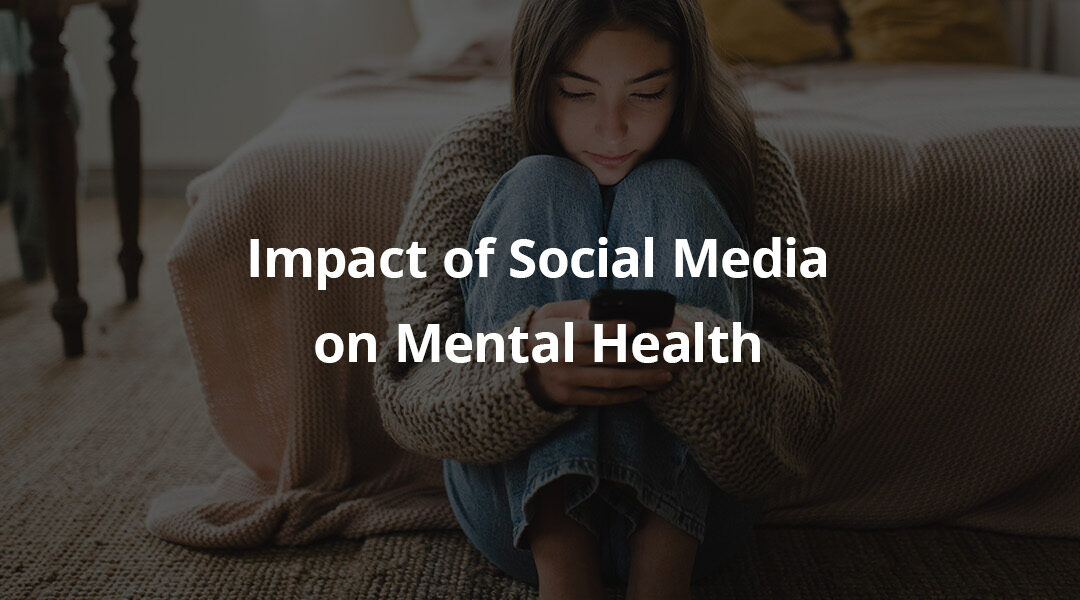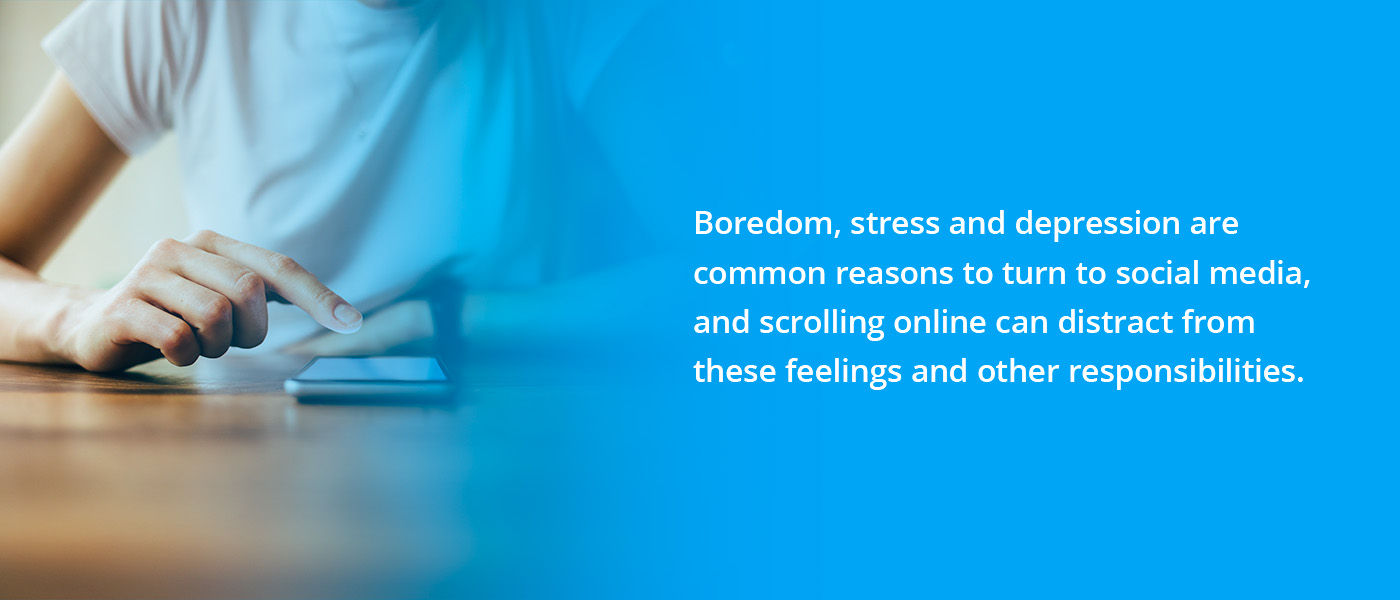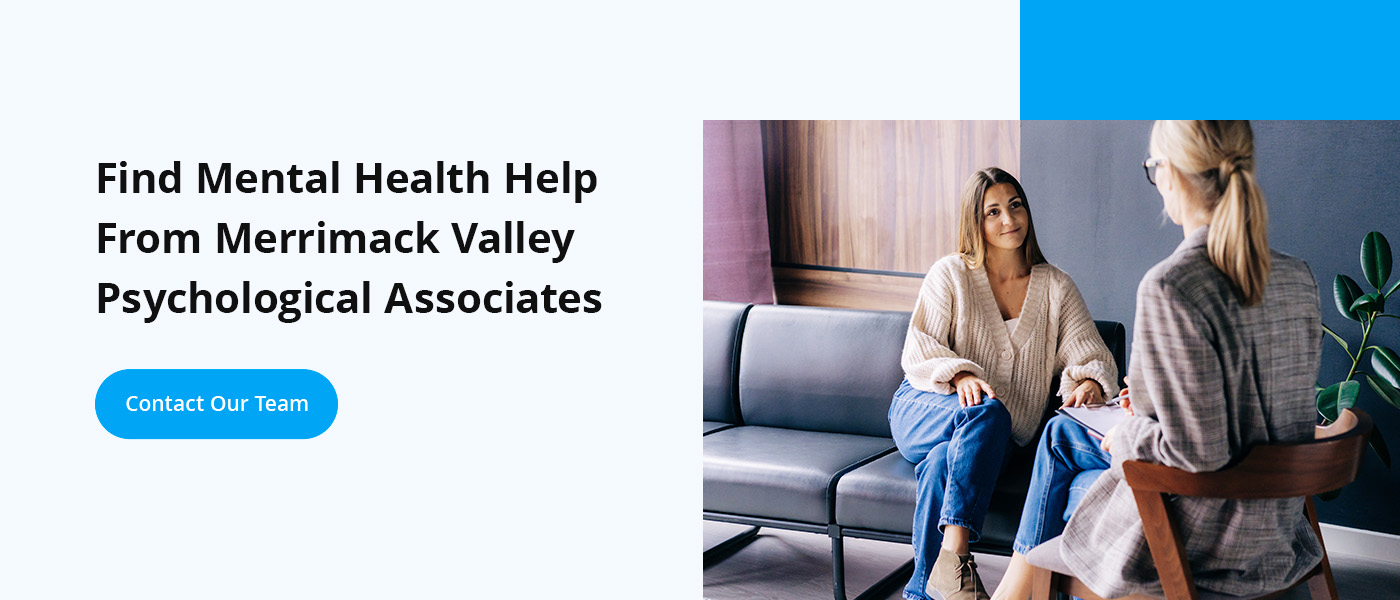Social media is everywhere. From Snapchat and Facebook to TikTok and YouTube, there are many ways to connect with people and find interesting information. Many don’t consider the impact social media can have on mental health. Although social media can encourage self-expression, entertainment, education and long-distance connections, we can’t ignore the relationship between social media and mental health.
Why Is Social Media Addictive?
Social media has the power to induce dopamine, stimulating effects similar to addiction. The constant surges of dopamine encourage people to get online over and over again. Once your brain experiences this rush of pleasure, it becomes harder to resist, creating addictive patterns. This phenomenon also makes it harder to log off sites once you’re on them, causing you to spend hours watching TikToks or scrolling aimlessly through Facebook threads.
Negative Effects of Social Media
The impact of social media can breech into many aspects of life. Studies have found a link between heavy social media use and increased risk for self-harm, loneliness, anxiety, depression and suicidal thoughts. Negative effects of social media include:
- Disrupting sleep: Spending too much time on social media can cause poor sleep routines and impact sleep quality. Digital screens can have stimulating effects, interfering with our internal rhythms. Along with finding it more challenging to fall asleep, many people disrupt their sleep cycles by checking their phones in the middle of the night.
- Creating distractions: The constant bright screens and notification sounds can make it difficult to stay productive. Additionally, apps promoting endless scrolling can quickly capture your attention and encourage you to forget responsibilities.
- Exposing people to cyberbullies: Cyberbullying can occur in many popular places, including online gaming communities, messaging apps, virtual chat rooms, emails, direct messaging platforms and sites that allow public comments and threads. With cyberbullying at an all-time high, many people online have been cyberbullied or encountered it at some point. Social media makes it easier to terrorize or attack others anonymously, creating many more opportunities for harmful words to spread.
- Providing an unrealistic view of life: In a world of photo editing and filters, social media lacks authenticity. There is no way to identify what is real and what is false. People are more likely to post positive things on social media because they seek self-esteem boosts and positive feedback or to increase their metrics. This creates and inauthentic idea that everyone else in the world is happy.
- Amplifying the fear of missing out: Fear of missing out (FOMO) is one of the most widespread impacts of social media. This phenomenon can occur innocently and purposefully. For instance, you may be unable to attend an event with friends because you have a prior engagement. When your friends post about it, you may feel left out even though they may not have had bad intentions. However, others may purposely post about an event you were not invited to, creating a more profound sense of insecurity about being left out.
- Distorting body images: A common theme on social media is perfectly shaped bodies wearing expensive clothing in beautiful settings. More than half of Americans report pressure to have a certain body type, and the constant exposure to perfect-looking people amplifies these negative feelings. This sometimes leads people to seek unhealthy routes, such as extreme dieting and eating disorders, to obtain a specific appearance.
Signs of Unhealthy Social Media Use
Social media can be a great tool when you use it properly. Determining the cause of unhealthy social media use can be challenging, but there are several key habits. Many people use social media to combat FOMO, and they return to social apps repeatedly to feel closer to other people or involved in activities they’ve missed.
Some users also rely on social media as a security blanket, with many turning to their phone when they feel lonely, awkward or anxious in various situations. People can adopt unhealthy social media behaviors while ignoring other underlying problems. Boredom, stress and depression are common reasons to turn to social media, and scrolling online can distract from these feelings and other responsibilities.
Watch for these signs to determine if social media affects your mental health:
- Spending time planning to use or thinking about social media.
- Feeling troubled or restless if you are unable to use social media or check your notifications.
- Trying to reduce your social media usage without success.
- Utilizing social media to forget about personal problems.
- Spending more time online than with friends face-to-face.
- Worsening feelings or depression, anxiety or loneliness.
- Unfavorably comparing yourself to others online.
- Witnessing or experiencing cyberbullying.
- Experiencing sleep disruptions and problems falling asleep.
- Becoming distracted at work or school.
- Spending all your free time online rather than spending time.
- Engaging in negative or risky behavior to gain positive reactions such as shares, comments and likes.
- Using your phone right before bed or as soon as you wake up in the morning.
Setting Social Media Boundaries
Learning how to deal with stress from social media can be simple. Simple tactics like setting reasonable limits and reducing your exposure can go a long way to benefit your mental health. For example, you can set timers to remind you to log off or create a healthy sleep schedule that encourages you to stay away from your phone for the last hour before bed. Families can monitor their children’s accounts for harmful content and have open discussions about mental health and what is acceptable online. Creating a supportive environment and encouraging face-to-face interactions is a fantastic way to find pleasure in everyday activities instead of online.
You can also swap social media time for more meaningful tasks. Spending time with friends and family strengthens connections while reducing social media exposure. Other activities like meditating, writing, reading, painting, exercise, yoga and self-care practices fill your time, encourage you to log off and promote better mental well-being.
Find Mental Health Help From Merrimack Valley Psychological Associates
If you show signs of an unhealthy relationship with social media or you find you can’t stop using it, it might be time to seek professional assistance. A therapist can help you identify and work through these challenges. At Merrimack Valley Psychological Associates, we understand that life can become overwhelming. Our compassionate and skilled team specializes in relating to people so you feel comfortable and welcome while exploring your mental health.
We can help you get to the root cause of your struggles with social media while providing a safe place to get the support you need. Contact our team to learn more!



